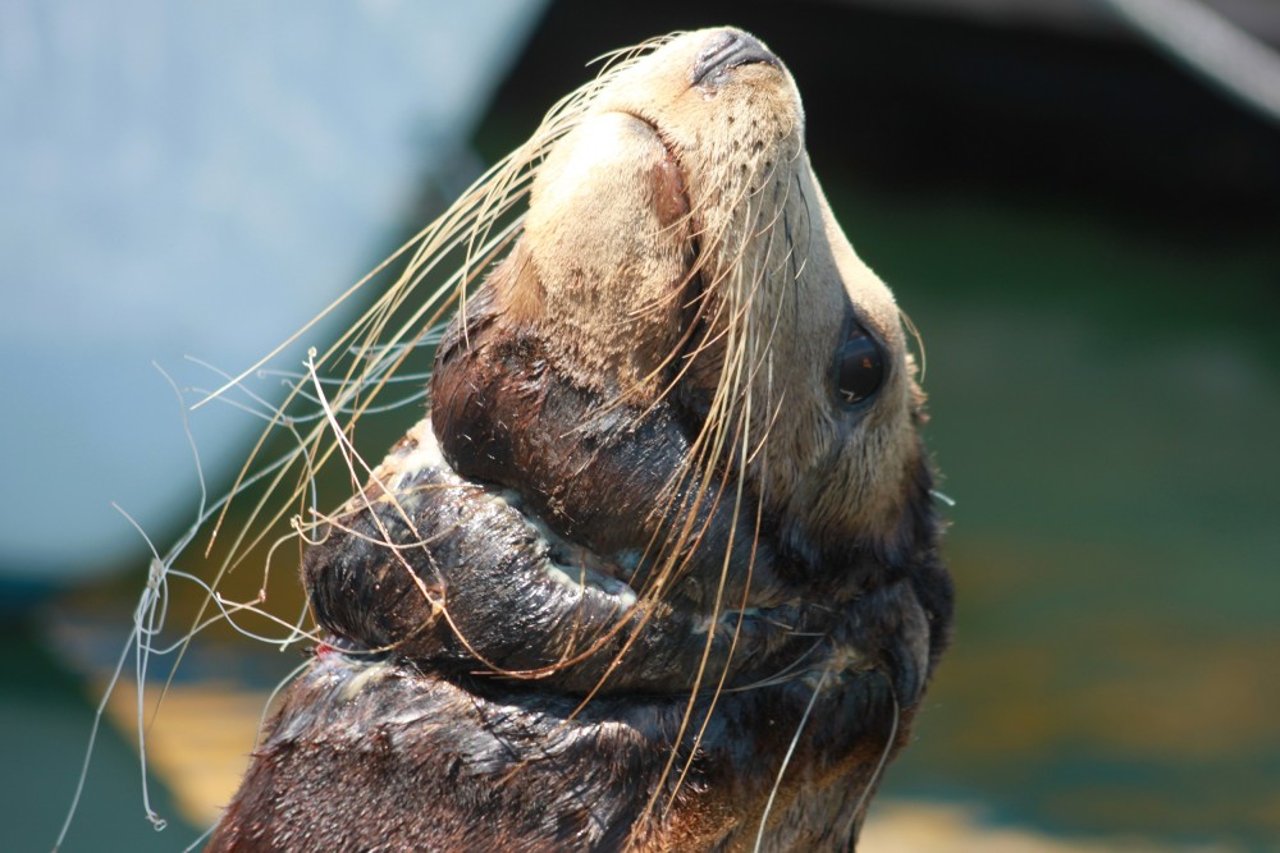
World Oceans Day: protecting sea animals and their homes from ghost fishing gear
Blog
By Joanna Toole
Today is World Oceans Day, when the world unites in celebration of our seas and the marine animals that depend on them.
This year’s theme is ‘Healthy Oceans, Healthy Planet’, with a focus on the effects of plastic pollution.
Plastic pollution is one of the biggest threats to the health of our oceans. An expanding rubbish dump beneath the waves is impacting everything, from the smallest zooplankton to the majestic whale. A report by the Ellen MacArthur Foundation released in January warned that if urgent action isn’t taken, there would be more plastic in the sea than fish by 2050.
Ghost fishing gear is one of the main culprits
Of the 6.4 million tonnes of plastic litter added to our oceans each year, around 10% (640,000 tonnes) is fishing gear. Recent research by Ocean Conservancy and the research arm of the Australian Government, CSIRO, revealed that of the 20 most common types of marine litter, ‘ghost gear’ (abandoned, lost or discarded fishing gear) poses the deadliest threat to marine animals.
These floating death traps entangle and kill millions of animals each year, including hundreds of thousands of whales, seals, turtles and birds. Once entangled, animals can drown within minutes or suffer in pain for months or even years.
A seal trapped in ghost fishing gear in California, USA. Image: Kanna Jones / Marine Photobank
Predominantly made of plastic, ghost gear can stay in our oceans for up to 600 years, eventually breaking down into smaller and smaller pieces known as micro-plastics, which have the potential to enter our food chain with toxic effects.
Working with the United Nations
Today, on World Oceans Day, we are hosting an event at the United Nations headquarters in New York to shine a spotlight on this crisis and demand urgent high-level action to solve it. The event, co-hosted by the governments of Sweden and Tonga (alongside co-sponsors Australia, New Zealand, Fiji, Palau, Thailand and Vanuatu) is promoting a collaborative approach between governments, the seafood industry, fishermen and civil society.
It's showcasing the Global Ghost Gear Initiative (GGGI), the cross-sectoral alliance founded by us, as the vehicle to facilitate this process.
Despite the amount of work yet to do, significant progress has been made. In April I was in Rome, sitting alongside other experts from across the world, to discuss and develop international guidelines for fishing gear marking. This expert consultation was organised by the Food and Agriculture Organization of the United Nations (FAO) as a result of several governments raising concern about this issue and its impact on marine animals, ecosystems, human health and livelihoods.
Keeping track of ghost gear
The resulting draft guidelines outline practical means of identifying the ownership and location of fishing gear, and a system by which these measures can be universally applied. If implemented by the fishing industry, gear marking would encourage better management practices and assist with gear retrieval, helping to prevent both deliberate and accidental loss of fishing gear.
It could also help authorities prevent cases of illegal, unreported and unregulated fishing and help those involved in the rescue of entangled animals identify the source of the entanglement.
Over the coming weeks, I, alongside others in the global World Animal Protection Sea Change team will be lobbying governments, asking them to support the development of these gear marking guidelines. We’re also asking them to prioritise coordinated action on ghost gear at the FAO’s Committee of Fisheries meeting in July.
Find out more about our Sea Change campaign work.
Collaboration is key to reaching our goal
By uniting the world’s efforts, we hope the United Nation’s goal of reducing marine litter by 2025 will be realised, and that ghost gear will no longer pose a threat to our oceans, or the animals and people who depend on them.
